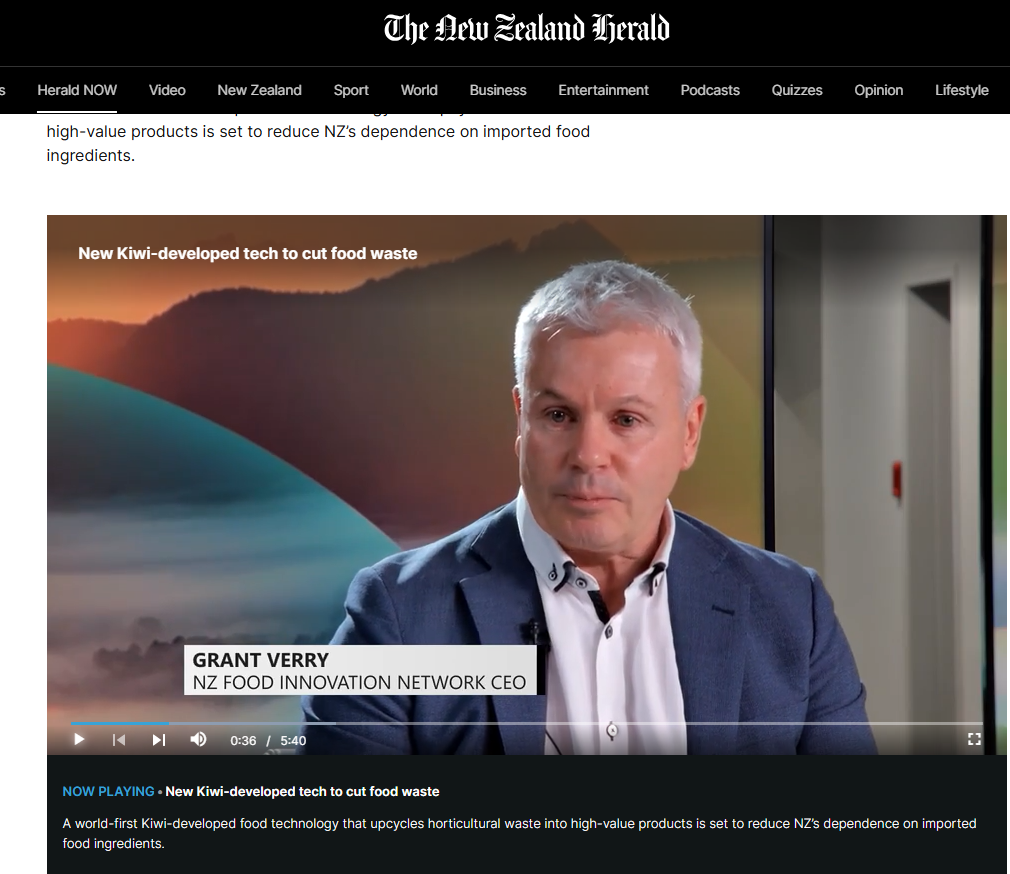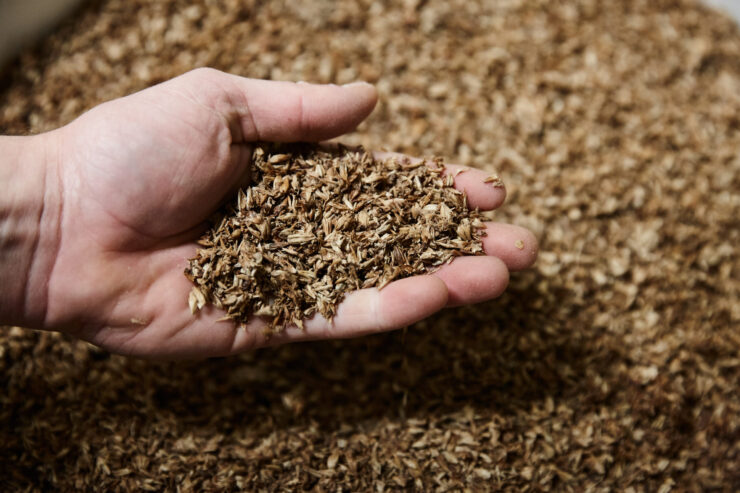Food Waste Innovation in New Zealand Turns Crop Surplus into Global Opportunity
Game-Changing Tech Transforms Horticultural Waste into Food-Grade Ingredients
A groundbreaking New Zealand-developed technology is set to reshape how the country manages food waste. Developed by sustainability venture Powered by Plants (PbP), the waste upcycling system converts surplus fruit and vegetables into shelf-stable, high-value food and supplement ingredients, dramatically reducing waste and New Zealand’s dependence on imported food products.
With support from the government-backed New Zealand Food Innovation Network (NZFIN), the circular model is solving local food waste challenges while creating export-ready products, fertiliser, bioenergy and even insect protein from materials that previously went to landfill.
Dr Andrew Prest, director of Powered by Plants, says the idea emerged from frustration with inefficiencies in the current food supply chain, where an estimated 20 percent of harvested crops never leave the farm.
“We grow over 6.2 million tonnes of fruit and vegetables annually, yet thousands of tonnes are discarded or sent for low-value use,” says Prest. “Our system is designed to recover that value and give growers more sustainable business models.”

High-Yield Crops Like Onions Could Be Worth Millions
Onions are among the most wasted crops in New Zealand. Of the 110,000 tonnes grown each year, up to 20 percent is lost. This represents $15 million in annual losses. Prest says the new system could recover $52.8 million in value from the biostabilisation phase alone.
“Instead of being dumped or used as stockfeed for just $20 per tonne, we can create food-grade ingredients worth up to $3,000 per tonne,” he says.
The system can process a wide range of surplus including carrots, capsicums, mushrooms and blueberries, with potential adaptation for crops like kiwifruit and stone fruit.
Circular Food System Designed for Resilience
NZFIN Co-CEO Grant Verry says the model supports a fully circular food system. Recoverable food waste is turned into concentrates and powders, while organic matter that can’t be salvaged becomes energy or protein through biogas or insect farming.
“This isn’t just about reducing food waste. It’s about improving economic outcomes for growers, reducing emissions, and building long-term food resilience,” says Verry.
He says the model is exportable and could be adopted by small growers across the Asia-Pacific who face similar supply chain and value recovery issues.

Regional Hubs to Support Jobs and Communities
PbP plans to develop regional processing networks in Gisborne, Hawke’s Bay and Pukekohe. These facilities will process around 8,000 tonnes of crop surplus annually and be staffed by local workers using automation and AI to ensure quality control.
“We use AI to detect spoilage and non-conforming product early, which improves consistency and reduces rejection rates in premium markets,” says Prest.
The facilities will create full-time roles in everything from produce sorting to high-grade ingredient manufacturing.
Empowering Growers with Choice and Value
Verry says the system provides growers with new revenue channels outside the major supermarket chains, giving them greater control over pricing and production.
“Growers often face rigid supply chains and low returns. This gives them alternatives that create higher margins and reduce dependency on perishable commodity cycles.”
Prest adds that the financial return from upcycled waste is a game-changer for both growers and communities. “Instead of wasting 20 percent of your harvest, this gives growers the chance to generate serious income from what was previously a loss.”
Food Waste to Opportunity: A Scalable Model for NZ and Beyond
The concept has already been piloted in Franklin and proven financially viable. With investment, Prest says the team is ready to scale nationally and help future-proof New Zealand’s food system.
“This model reduces imports, creates jobs, supports rural economies and boosts food security. It’s not just good business; it’s the right thing to do,” says Prest.
Media Coverage Underscores National Interest in Food Waste Innovation
The launch of this breakthrough food waste upcycling technology has captured the attention of national media, with widespread coverage across trusted outlets such as the New Zealand Herald, Newstalk ZB, and RNZ. The strong editorial interest reflects the urgency of finding scalable, circular solutions to New Zealand’s growing food waste crisis.
These media features have helped spotlight the potential of the Powered by Plants model to transform how the country approaches surplus crop management, reduce reliance on imported ingredients, and enhance food security. From growers to policymakers, the story is driving national conversation about the future of sustainable food production.
If your organisation is working on a project with environmental, economic or social impact and needs to amplify its message, Impact PR’s media relations team can help you connect with the right audiences through trusted national news platforms.
